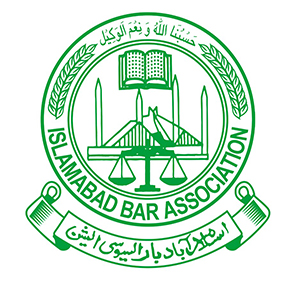Types of study visa:
- Student visa
- Child Student visa
- Study English in the UK (Short-term study visa upto 11 Months)
You can apply for Student visa to study in the UK if you:
- have been offered a place on a course by a licensed student sponsor
- have enough money to support yourself and pay for your course – the amount will vary depending on your circumstances
- can speak, read, write and understand English
- have consent from your parents if you’re 16 or 17 – you’ll need evidence of this when you apply
If you’re 16 or 17 and you want to study at an independent school in the UK, you may be eligible for a Child Student visa instead.
You can do one of the following courses:
- a full-time course leading to a qualification that’s below degree level (RQF level 3, 4 or 5) with at least 15 hours a week of organised daytime study
- a full-time course leading to a qualification that’s degree level or above (RQF level 6, 7 or 8)
- a full-time course at degree level or above (RQF level 6,7 or 8) that’s equivalent to a UK higher education course and is being delivered as part of a longer course overseas
- a part-time course leading to a qualification that’s above degree level (RQF level 7 or above)
- a recognised foundation programme for postgraduate doctors or dentists
- an English language course at level B2 or above in the Common European Framework of Reference for Languages
Confirmation of Acceptance for Studies (CAS):
Once they’ve offered you a place on the course, your education provider will send you a reference number called a Confirmation of Acceptance for Studies.
You must enter this reference number on your visa application.
You must apply for your visa within 6 months of receiving your CAS
Money you need:
You must have enough money to pay for your course and support yourself in the UK.
How much money you need depends on your circumstances and what you’re applying for.
Course fee:
You need enough money to pay for your course for 1 academic year (up to 9 months). The amount you need to pay will be on your Confirmation of Acceptance for Studies (CAS).
If you’ve been in the UK with a valid visa for at least 12 months, you do not need to prove you have this money for your visa application.
You’ll need to show you have enough money to support yourself – unless you’ve been in the UK with a valid visa for at least 12 months on the date of your application.
How much money you need depends on where you will be studying. You’ll need either:
- £1,334 per month (for up to 9 months) for courses in London
- £1,023 per month (for up to 9 months) for courses outside London
If you’re boarding at a residential independent school, you’ll need to pay boarding fees instead. The amount you need to pay will be on your CAS.
London means the City of London and the 32 London boroughs.
You must have this money for at least 28 consecutive days. The end date of the 28-day period must be within 31 days of the date you apply for your visa. For example, if you submit your application on 1 January 2024, you’d have to show that the funds were in your bank account for at least the 28-day period ending on 1 December.
You’ll need to prove you have extra money for each family member you bring with you subject to level of chosen Course / University under the prevailing immigration law/rules.
If you’re from a country listed under the ‘differential evidence requirement’. You do not need to prove you have enough money to support yourself if you’re a British national overseas or from one of the following countries or territories:
- Australia
- Austria
- Bahrain
- Barbados
- Belgium
- Botswana
- Brazil
- Brunei
- Bulgaria
- Cambodia
- Canada
- Chile
- China
- Croatia
- Republic of Cyprus
- Czech Republic
- Denmark
- The Dominican Republic
- Estonia
- Finland
- France
- Germany
- Greece
- Hong Kong
- Hungary
- Iceland
- Indonesia
- Ireland
- Italy
- Japan
- Kazakhstan
- Kuwait
- Latvia
- Liechtenstein
- Lithuania
- Luxembourg
- Macao
- Malaysia
- Malta
- Mauritius
- Mexico
- Netherlands
- New Zealand
- Norway
- Oman
- Peru
- Poland
- Portugal
- Qatar
- Romania
- Serbia
- Singapore
- Slovakia
- Slovenia
- South Korea
- Spain
- Sweden
- Switzerland
- Taiwan
- Thailand
- Tunisia
- United Arab Emirates
- United States of America
However, you might be asked to provide this evidence before you get a decision on your application. If you do need to provide it, you’ll be contacted by UK Visas and Immigration (UKVI) after you’ve submitted your application.
English Language Requirements:
You must prove your knowledge of the English language when you apply.
You can prove your knowledge of English by:
- passing a Secure English Language Test (SELT) from an approved provider
- having a GCSE, A level, Scottish National Qualification level 4 or 5, Scottish Higher or Advanced Higher in English, gained through study at a UK school that you began when you were under 18
Level of English:
You must prove you can read, write, speak and understand English to a certain level on the Common European Framework of Reference for Languages (CEFR) scale.
| What you’re studying | Level |
| Degree level or above | Equivalent to CEFR level B2 |
| Below degree level | CEFR level B1 |
If you’re studying with a Higher Education Provider:
If you’re studying at degree level or above, your Higher Education Provider (HEP) can assess your level of English themselves. This means they may ask you to do a different test.
This must still be equivalent to a CEFR level B2.
Who does not need to prove their knowledge of English:
You do not need to prove your knowledge of English if you’re from one of the following countries or territories, or you’ve completed a qualification equivalent to a UK degree in one of them:
- Antigua and Barbuda
- Australia
- the Bahamas
- Barbados
- Belize
- the British overseas territories
- Dominica
- Grenada
- Guyana
- Ireland
- Jamaica
- Malta
- New Zealand
- St Kitts and Nevis
- St Lucia
- St Vincent and the Grenadines
- Trinidad and Tobago
- UK
- USA
You also do not need to prove your knowledge of English if one of the following applies:
- you’re a national of Canada
- you’re applying to come to the UK for a study abroad programme as part of a university degree course in the USA
- you proved your level of English in a previous visa application
Mandatory Documents you’ll need to apply:
When you apply for your Student visa you must provide:
- Current passport or other valid travel documentation
- Confirmation of Acceptance for Studies (CAS) from your course provider
- Tuberculosis test results
- proof you have enough money to support yourself and pay for your course – this will vary depending on your circumstances
You may also need to provide:
- A valid ATAS certificate if your course and nationality require it (if so applicable)
- proof of parental or other legal guardian consent if you’re under 18 (if so applicable)
- proof of your relationship to your parent or guardian if you’re under 18 (if so applicable)
- written consent for your application from your financial sponsor if you’ve received sponsorship for your course fees and living costs in the last 12 months (if so applicable)
- Any other document(s) depending on case/circumstances to case/circumstances basis, as advised by your Immigration Lawyer according to nature of your case/circumstances
If you’re under 18:
If you’re under 18 you’ll need written consent from both parents or legal guardians (or one parent if they have sole responsibility).
This must include their consent for:
- your visa application
- your living and care arrangements in the UK
- your travel to the UK
You’ll also need to provide a copy of your birth certificate (or another government issued document) that shows the names of your parents.
When to apply:
When you can apply depends on whether you’re applying from inside or outside the UK.
Applying from outside the UK
The earliest you can apply for a visa is 6 months before you start your course.
You’ll usually get a decision on your visa within 3 weeks.
Applying from inside the UK
The earliest you can apply is 3 months before your course starts.
After you apply (Application submission in UKVAC & Biometric):
You’ll be contacted if your application is complex and will take longer, for example because:
- your supporting documents need to be verified
- you need to attend an interview
- of your personal circumstances (for example if you have a criminal conviction)
How long you can stay:
How long you can stay depends on the length of your course and what study you’ve already completed in the UK.
If you’re 18 or over and your course is at degree level, you can usually stay in the UK for up to 5 years & if it’s below degree level, you can usually stay in the UK for up to 2 years.
Staying longer in the UK:
You may be able to:
- extend your visa if you’re eligible, for example to continue your studies in the UK
- switch to a Student visa from another visa if you’re already in the UK
- switch to a Graduate visa to stay in the UK for at least 2 years after successfully completing your course
Extend your visa:
You may be able to extend your Student visa to stay longer and continue your course or study a new course. This includes if you currently have a Tier 4 (General) student visa.
To extend your visa you must:
- be in the UK on a Student visa or a Tier 4 (General) student visa
- have an unconditional offer of a place on a course with a licensed student sponsor – shown by your Confirmation of Acceptance for Studies (CAS)
- show that your studies are at a higher academic level than your current course (called the ‘academic progress requirement’) – there are some exceptions
If you’ve been in the UK with a valid visa for less than 12 months, you’ll need to prove you have enough money to support yourself in the UK.
Your partner or children will need to apply separately to extend their visa. They can either apply at the same time as you, or at any time before their current visa expires.
You can also switch to a Graduate visa to stay in the UK for at least 2 years after successfully completing your course.
Showing academic progress:
If you’re currently studying in the UK, you’ll usually need to show your studies will be at a higher academic level than your current course.
Your new course must be one of the following:
- at a higher academic level than your current course
- at the same level and related to your previous course or career aspirations – it must be degree level or above at a Higher Education Provider (HEP)
- intercalated to a medicine, dentistry or medical science course you started studying under your Student visa (including a Tier 4 (General) student visa)
When you can travel to the UK:
You can arrive before your course starts. This can be either:
- up to 1 week before, if your course lasts 6 months or less
- up to 1 month before, if your course lasts more than 6 months
You must not travel to the UK before the start date given on your visa, no matter when your course starts.
Visa Fees:
It costs:
- £490 to apply for a Student visa from outside the UK
You must pay the visa fee for each person that joins you.
Healthcare surcharge:
You’ll also have to pay the healthcare surcharge as part of your application.
How much you pay depends on how long your visa lasts. Check how much you’ll have to pay before you apply.
Your partner and children
You may be able to bring your partner and children (‘dependants’) subject to certain conditions under the law.
What you can and cannot do:
You can:
- study
- work as a student union sabbatical officer
You may be able to work – how much depends on what you’re studying and whether you’re working in or out of term-time.
You cannot:
- claim public funds (benefits) and pensions
- work in certain jobs, for example as a professional sportsperson or sports coach
- be self-employed
- study at an academy or a local authority-funded school (also known as a maintained school)
Documents Checklist:
1.Valid Passport (pages 1st, 2nd)
2. All Educational Documents including transcripts, marksheets & Degree certificate
(In case degree is not issued, degree completion certificate is compulsory)
3. IELTS or English Alternate Test
4. Academic Reference on Letter Headed Paper
5. Personal Statement (SOP)
6. Work Experience (In case of any gap)
7. Resume (Detailed)
8. Previous Visa History or Refusal (If applicable)
9-Previous Travel History / Visa Refusal Details
Online interviews are a common part of the UK university admission process. The interviews assess the student’s seriousness about their course and English language fluency.
Please NOTE that convert all documents to two or three PDF’s. All files (supporting documents) need to be no larger than 10MB in size otherwise they will be rejected by our server. Personal statement should be in MS word format.








